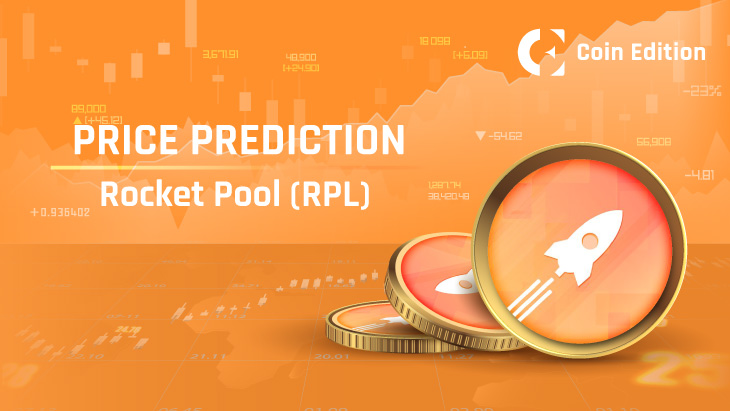In the cryptocurrency ecosystem, Indonesia has witnessed several ups and downs. Although the archipelago was late in adopting digital assets, it has steadily developed a strong user base, with the advent of mobile internet and digital finance.
Unlike the older generation, youngsters accessed their mobile phones more and made payments quite often digitally. This financial change enabled crypto to seamlessly enter the picture. Since they can access the digital asset updates consistently via smartphones, the younger generation quickly adapted to the crypto ecosystem.
By 2024, crypto trading in Indonesia had crossed Rp 650 trillion (around $40 billion), garnering attention among the masses. Most of this growth came from places like Jakarta, Bandung, and Yogyakarta, where tech adoption and digital literacy are high. According to a recent report, Indonesia ranks among the top three countries globally for its strong retail activity in both centralized and DeFi services.
Table of contents
How It Started
Though the country has a robust user base, crypto adoption was significantly slow. The journey began in the early 2010s when small talks revolved around Bitcoin. Further, tourists in Bali tried to pay for the services in crypto, which further intrigued the community, leading to the development of Indodax in 2014. A leading cryptocurrency exchange in Indonesia, it provides a secure and efficient platform for trading over 400 assets.
However, in 2017, Bank Indonesia, the central bank of Indonesia, banned the use of crypto for payments. Though it was legal to hold and trade the assets, it was considered illegal to use them as a payment tool. Following this, in 2018, the Ministry of Trade legalized Bitcoin trading and other assets as commodities.
In 2019, Bappebti, or Badan Pengawas Perdagangan Berjangka Komoditi, which is the Indonesian Commodity Futures Trading Regulatory Agency, released trading rules that were specific to crypto exchanges. This was followed up by another regulation in 2021 for organizing physical market trading for crypto assets on the Futures exchange. Another significant factor during this period was the bull-run fever, in which the national volume smashed to $56 billion, putting the nation in the top five global traffic.
By 2022, all cryptocurrencies, including Bitcoin, were listed as ‘monitored financial technologies’ in which all related activities about their innovation, utilization, and other activities will be subject to Bank Indonesia and Financial Services Authority control and monitoring. Further, it slapped a 0.1% income tax and 0.11% VAT on every crypto trade, and was the first Southeast Asian nation to codify dual taxes on digital assets.
In July 2023, Indonesia launched the world’s first state-backed crypto, Bourse, to list existing licensed crypto firms as traders. Later, in 2024, crypto outpaced retail stock accounts for the first time, and trading value touched $40 billion, with a robust user base of 22 million. In 2025, Indonesia was treating crypto as a full-blown financial service. Earlier this year, in February, the Financial Services Authority (OJK) launched a Crypto Literacy Month to bring awareness of scams and teach users tax compliance.
In May 2025, Nasdaq-listed DigiAsia announced plans to raise $100 million and put 50% of profits into Bitcoin, thus sending its stock up by 90%. Further, it was also around this time that Sam Altman’s iris-scanning Worldcoin project was suspended by regulators, citing data privacy concerns.
Security Concerns
With the increase in users, security issues have also increased, especially phishing scams and fake investment platforms that target new users through social media. Further, smaller exchanges with weak KYC processes leave loopholes for money laundering and fraud. The fact that digital assets lack evident insurance also endangers investors in the event of a hack or a failure of an exchange. Regulators have raised alarms over offshore platforms operating without licenses, making enforcement tricky. Due to the increased adoption of users apart from cities, it is crucial to ensure user education and platform compliance to save both investors and the integrity of the market.
Regulatory Compliance
Although it is late to join the list, the Indonesian crypto markets are making every effort to be in compliance with the government. After taking control from Bappebti since January 2025, the Financial Services Authority (OJK) has introduced stricter regulatory measures to protect investors. According to the new regulatory rule, every crypto exchange, custodian, and clearing house must provide quarterly reports on their cybersecurity and comply with real-time reporting requirements.
So far, 19 entities are fully licensed, including one national exchange, and another 14 platforms are in the final stages of licensing. OJK also requires client fund segregation, KYC/AML compliance, and the formation of a Securities Investor Protection Fund (SIPF) specifically for crypto users. To improve transparency, the state-backed Bourse was launched to protect investors. Moreover, the government maintains a list of crypto assets that were given the nod for trading. Currently, it has over 1,300 assets, which include BTC, SOL, USDC, UNI, ETH, DOGE, ADA, SHIB, USDT, LINK, AVAX, MKR, and SUSHI.
Sharia Laws Take Center Stage
Being a Muslim-dominant nation, the usage of cryptocurrency is considered ‘haram’ by over three-fourths of the population. Sharia or the Islamic law, is primarily implemented in the province of Aceh, located in the northernmost tip of the island of Sumatra, and addresses several aspects of life, including marriage, divorce, criminal law, and even inheritance. However, by making a few Sharia-compliant solutions, crypto trading could be eased in Indonesia.
The National Ulema Council (MUI) has announced that cryptocurrency can be traded if it meets the criteria of transparency and ownership, and must not be used for gambling or fraud. Some local exchanges, including Indodax, provide Sharia-compliant trading options, which avoid tokens based on high speculation or vague utility. Moreover, a number of Islamic fintech platforms are now creating Sharia-compliant financial instruments, including tokenized sukuk (Islamic bonds) and smart contracts designed on profit-sharing principles rather than interest-based lending.
Asia’s Crypto Hotspot
Indonesia is one of the leading Asian countries and ranks third globally for crypto adoption. It also received the largest crypto inflows in the Asia-Pacific region, with over $157 billion in transactions over the last two years, putting it on par with Vietnam and the Philippines. Indonesia has become one of the most vibrant crypto markets in the region, with about 14% of people holding a crypto asset. Moreover, the nation has emerged as an important crypto marketplace in Asia with a high rate of user adoption and volume of trades.
Final Thoughts
The crypto journey in Indonesia balances its path towards digital transformation by connecting innovation and control. Making a tentative start, Indonesia has become one of the most active adopters in the world, its regulation framework being robust and the involvement of institutions increasingly profound. While there are still some problems, including online security risks and offshore fraud, Indonesia is also taking a definitive step towards deploying an ethical and secure crypto ecosystem. Over the next few years, Indonesia will lead the charge in disrupting Southeast Asia with a digital asset revolution.
Disclaimer: The information presented in this article is for informational and educational purposes only. The article does not constitute financial advice or advice of any kind. Coin Edition is not responsible for any losses incurred as a result of the utilization of content, products, or services mentioned. Readers are advised to exercise caution before taking any action related to the company.







